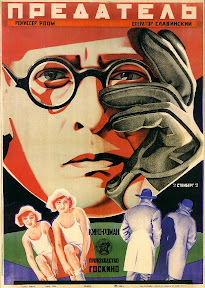I've just begun Sherry Turkle's book Life on the Screen: Identity and the Age of the Internet, finish the introduction and the first chapter. Turkle begins her book, which is mostly about MUD-based interactions (think self-designable chatrooms, for now), with an interesting distinction between Modernist and Postmodernist of computer technology. The modernist defines the computer in the sense of an enlarged, more powerful calculator, capable of "computation" in the very literal sense. Postmodernist views, which she obviously prefers and embraces for the book thus far, see computer technology and the internet as an embodiment of itself; computers decentralize and fragment themselves, link (or hyperlink) between objects in infinite number of ways, and allow individual or unique creations in both hardware configurations and representation of the self (MUD chat rooms are her example).
Briefly summarizing the latter, a user can enter a chatroom and become who they want to be. They can become someone of a different gender, sexual orientation, cultural background, etc. and design a world and a simulated life around this persona that they've chosen to adopt. She asserts that some of these users feel more Real in their simulated environment, as if they've final constructed the life they were always meant to have had. Turkle moves on to lay out a history of computer-culture before the internet, while maintaining her modernist/postmodernist binary. What becomes most interesting for me is when she moves into the subsection "objects-to-think-with"...
Computers have become objects of orientation, of remembering, and of life processing. Much like what Sontag says of the photograph at a wedding re-membering the experience, the computer creates a tension between the user and their input and the way it is re-received. But, like photographs, they have become a part of remembrance, so much that we can often rely on photographs (now digital) to recall an event or experience. (Virilio talks about this too, in The Information Bomb in a totally different light). Further than that, like the way certain knowledges are appropriated by the masses and become a part of the way we think about the world (such as Freudian Slips or Dream Analysis from Freud), computers shape ours:
"Today, life on the computer screen carries theory. Here is how it happens. People decide that they want to buy an easy-to-use computer. They are attracted by a consumer product -- say, a computer with a Macintosh-style interface [note, Turkle is writing 11 years ago]. They think they are getting an instrumentally useful product, and there is little question that they are. But now it is in their home and they interact with it every day. And it turns out they are also getting an object that teaches them a new way of thinking and encourages them to develop new expectations about the kinds of relationships they and their children will have with machines. People decide that they want to interact with others on a computer network. They get an account on a commercial service. They think that this will provide them with new access to people and information, and of course it does. But it does more. When they log on, they may find themselves playing multiple roles, they may find themselves playing characters of the opposite sex. In this way they are swept up by the experiences that enable them to explore previously unexamined aspects of their sexuality or that challenge their ideas about a unitary self."
-- Sherry Turkle, Life on the Screen: Identity and the Age of the Internet
...
My apologies for the vague and overlong summary. My purpose was to get down exactly what I liked about the introduction and the first chapter. The book is extremely pro-digital technology and has done little to complicate that thus far. But it is very informative in drawing a map of the sort of subjectivity-grounded-in-postmodernism. By far the biggest problem with the book is that it is 11 years old and a considerable amount of technological advancements have happened since then.
My main concern at the moment comes from the idea of computer technology (and, more related to the present moment, cyber- or internet technology) as an extension of the self. I hope Turkle goes into more depth here, because she rejects the equation of the computer with the human mind, so the usage of the computer for the mind doesn't quite connect. Virilio and Baudrillard (and Lyotard?) seem to address this from the other point of view. It will be interesting to dive deeper into both sides.
Tuesday, September 19, 2006
Subscribe to:
Post Comments (Atom)


No comments:
Post a Comment